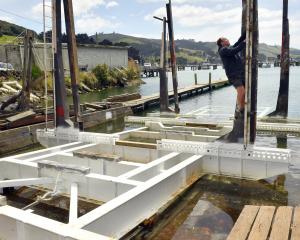
One way or another, large increases in water, sewerage and stormwater costs will drench households.
Most councils, and by extension voters, have neglected the necessary infrastructure. The debt collector is calling.
Labour’s plan — called Three Waters and then Affordable Water once the former label turned toxic — would also have been expensive, whatever the claimed savings. Under four or, later, 10 entities, someone still had to pay for all the work on and underground.
Even with balance sheet separation, the hefty borrowing had to be serviced. The bureaucracy had to be paid for and the entities were removed from local accountability.
There were also serious
questions about the interface between the entities and
councils on planning and stormwater issues.
Councils effectively lost ownership of their assets. The blame, however, could have switched to the entities when water and sewerage bills soared.
It is a shame so much money has gone down the drain on Labour’s plan, perhaps half of the $1.2 billion spent. Given the size of the Three Waters backlog, estimated at $180b a few years ago, every dollar possible will be needed.
National calls its scheme Local Water Well Done. Because that label is also inane, it makes sense to still talk about Three Waters — the drinking water, stormwater and wastewater.
The new plans have key similarities with Labour’s, notably a strong water regulator and what is asserted will be "balance sheet separation". Councils will divert Three Waters into council-controlled organisations. These would then undertake the borrowing, although government guarantees may be required, despite government denials.
Ditching Labour’s specific Māori involvement (through an appointment board) removes one contentious point. How councils deal with mana whenua water issues will now be in their court. There will be plenty of scope for disagreement and, perhaps, court action.
In many ways, the government is throwing the problems back at councils, the places where the difficulties arose. They keep "ownership" of their multibillion-dollar assets but must work out how they will combine and co-operate.
That could be messy, in part because some councils will not want to subsidise others which face the worst costs.
While most direct expenses, plus a share of the overheads and expertise might still fall on specific communities, some cross-subsidies could occur.
This is already an issue. Councils make decisions on how much bigger centres bail out nearby small communities facing impossible Three Waters costs.
Wellington, the poster child of neglect, has certainly made its bed. Wellington, not other parts of the country via taxpayers, should be responsible for that.
Water meters, already used in centres such as Auckland and Nelson, are likely to be required in many places by many council-controlled water organisations.
Their overall capital cost is massive, and they are tough for larger families. But there is no doubt they make telling differences in water conservation. Frugal households and those living alone are rewarded. Leaks are much more likely to be identified and fixed.
The government is endeavouring to help transitions through "streamlining requirements" for establishing the water organisations and a "new range of structural and financing tools". It has also set up a "technical advisory group".
Views among mayors and councils vary widely. Challenges will be numerous and complex.
Councils have progressively been stripped of responsibilities, for better and for worse. Labour’s water entities and its Resource Management Act replacements would have gutted key local responsibilities.
National’s reversals throw serious onus back on councils.
They, and the government, must not get bogged down in the quagmire of difficulties that arise.
They must push on to make the best of what emerges.
In the meantime, they need to keep allocating resources to Three Waters projects. There is so much work to be done, in whatever way that is administered, organised and funded.












